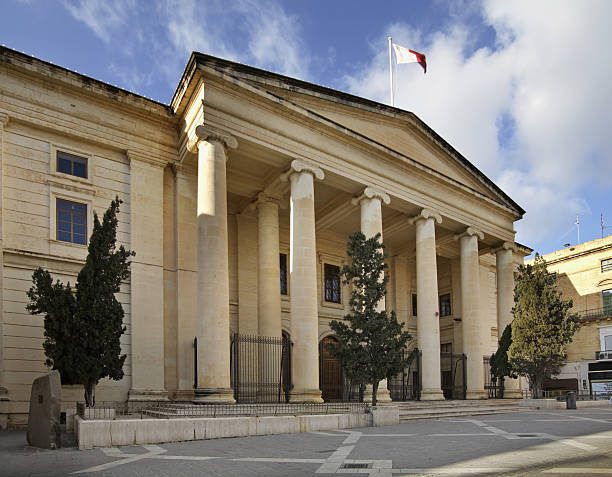How is your jurisdiction changing its approach to disputes?
Malta is a small country with a population of 500,000. Recently, a newspaper reported that there are slightly over 15,000 pending court cases in Malta. From my experience, a case in Malta would take two to three years to be decided in the court of first instance. If there is an appeal, the problem is dramatically increased. An appeal may be appointed until recently 3 years after it has been filed. Recently there has been an improvement, but the problem still exists.
There have been a number of attempts to decrease the pressure on the law courts, either by creating an administrative tribunal or else imposing forced arbitration and mediation.
I will be describing some of these measures. In 1995 the Small Claims Tribunal Act was introduced. Small Claims Tribunals were set up in order to listen to and decide on money claims which had a small value. Today the claim limit is €5,000. Before, such claims were dealt with by the lower courts. Therefore, since 1995, the courts have been relieved from claims with a small value, except on some occasions with more complex legal cases.
The Courts were burdened with a number of administrative cases, which dealt with decisions taken by public authorities. Throughout the years, a number of administrative tribunals were also set up. In 2007, the Administrative Justice Act was enacted which collected the competencies of these administrative tribunals and the competencies of the court in administrative matters in one tribunal, the Administrative Review Tribunal. The Tribunal now deals with issues concerning taxes, import duties, VAT, and the Malta Communication Authority decisions, just to mention a few.
As to arbitration and mediation, legislation has been enacted to force parties in disputes to take arbitration proceedings, instead of going to court. Such examples are cases dealing with civil damages in vehicle collisions. Therefore, damages caused to vehicles are handled by arbitration adjudicators. Personal injuries are excluded from arbitration and are still heard by the courts. Legislation also forced couples to go to mediation before proceedings for separation, divorce, or custody battles. This gives a chance for couples to possibly find a solution to their differences and reach an amicable solution before going to court.
Are you seeing an increase in hybrid, multi-tier and carve-out dispute resolution clauses – and what impact is this having on commercial agreements?
Malta has the structure to offer parties alternative dispute resolution. Malta has an Arbitration Centre (www.arbitration.mt) and a Mediation Centre (mediation.mt). Admittedly they are not as popular as in other financial centres, however, they are there and they are efficient if one wants to make use of them. As such, I have not seen a shift from the traditional jurisdiction clause to the hybrid or multi-tier dispute resolution clauses.
Traditionally, the parties to an agreement will choose the jurisdiction under which the agreement falls, and the mode of dispute resolution. There are many agreements mentioning arbitration as the preferred mode of dispute resolution.
However, the courts have held that irrespective of an arbitration clause, even if the arbitration clause mentions a different jurisdiction, the Maltese court may still have jurisdiction if one of the circumstances listed in our procedural law exists. Article 742 of the Code of Organisation and Civil Procedure lists those circumstances under which the Maltese Courts have jurisdiction. Therefore, there may be complex discussions on pleas of jurisdiction in court cases filed in Malta.
However, when advising clients to include such hybrid and multi-tier dispute resolution clauses when there is a Maltese element, one can safely say that it is legal and may be drafted in the agreement. It is enforceable in most circumstances.
How is litigation handled in your jurisdiction; both culturally and procedurally? Is ChatGPT being used in disputes in your jurisdiction, and what impact is this having on processes?
Litigation in Malta is as complex as in other jurisdictions. There are specific procedures on how actions are instituted and one has to take notice of certain aspects of the law such as prescription. Again, the law on prescription has its complexity. In general, damages cases are time-barred by two years, and commercial claims are time-barred by five years.
When one wants to file an action in Malta, one would file a claim in the form of an application, and one would have to choose the court. For example, if the case will be heard by the inferior or superior courts. If in the superior court, one would have to indicate whether the case will be heard before the general superior courts or else the specialised courts, such as the commercial court or else family law section.
As in many other jurisdictions, the plaintiff will have to present his or her evidence and when that is closed, the defendant presents his or her evidence. Once the evidence is closed, the lawyers for the parties present their submissions. Nowadays most of the submissions are done in writing, but they can be done orally too. The court would then defer the case for judgement, which judgement would be read out in open court, but also posted on the court’s website.
As to ChatGPT, it has not become an issue at the moment, but I am sure it will be in the near future.
Av. Malcolm Mifsud
Partner
Mifsud & Mifsud Advocates
This article can also be accessed on IR Global 2023.
For more information you can contact one of our Team Members at Mifsud & Mifsud Advocates.











